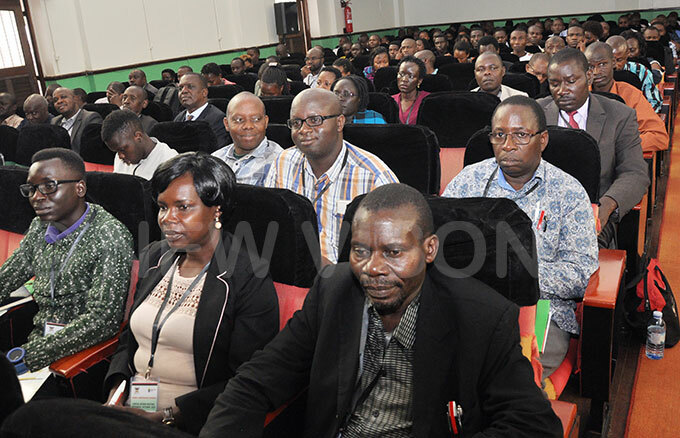Makerere sets fresh research targets
According to Pro.Banabas Nawangwe, the university vice-chancellor this has boosted the university’s research capacity.
EDUCATION RESEARCH
Makerere University has set fresh research targets to achieve by 2022. The university has for the last two decades received increased funding to boost research from both Government and development partners.
According to Pro.Banabas Nawangwe, the university vice-chancellor this has boosted the university's research capacity.
The Government of Sweden through its development agency, Swedish International Development Agency (SIDA) has been the single largest funder of research at Makerere.
It has injected over $100m (about Sh369.4b) since 2000 when the Makerere-SIDA research cooperation was agreed.
At the annual research and innovation review meeting hosted at the university recently, Nawangwe reported that over 300 members of staff have been trained at PhD and many more at Masters Level.
"Indeed the academic landscape has greatly changed. Testimony to this is the fact that we are currently ranked second on the African continent in terms of research output and publications," Nawangwe said.
 A cross-section of participants listening to speeches during Makerere University -Sweden bilateral research cooperation annual review meeting for research support to Uganda at Makerere University
A cross-section of participants listening to speeches during Makerere University -Sweden bilateral research cooperation annual review meeting for research support to Uganda at Makerere University
The research publications and citations according to Nawangwe have boosted from only 70 in 2000 to 1000 every year. "Our target is to increase the research publications and citations to 2000 by the year 2022," he said.
Dr. Vicente Ssembatya, the university director of quality assurance, revealed that they aim to launch 300 research collaborations with private sector and other institutions and develop new curriculum to include emerging areas such as artificial intelligence.
Others will include the publication of 1,500 journal articles, graduating 120 PhD per year, achieve 40% enrollment in science, technology and innovations, leveraging on ICT for smart infrastructure among others.
However, according to the former executive director of the National Council for Higher Education (NCHE), Prof. Abdu B.K. Kasozi, the country is faced with a burden of promoting quality research instrumental for the provision of solutions to the social -economic challenges.
According to Dr. Kasozi, the critical deficit of postgraduate doctoral degree (PHD) scholars, who would spearhead research, was another stumbling block
The country according to Kasoozi needs to train at least 10,000 more PhD holders to bridge the deficit.
The country's university PhD training capacities, Kasoozi said can only be stretched to deliver about 200 individuals a year.
For instance, in the academic year 2014/2015, only 100-120 PhD holders were graduated.
Makerere University total funding has increased from $38m (about Sh140.3b) to $130m (about Sh480b). The Government remains the leading funder of the university.
The government has since committed Sh30b annually to support the University's research and innovations development programmes effective this financial year.
"I believe even the other public universities too need this crucial support in order to develop their research capabilities," he said.
Recently Government through the education ministry secured over $200m (about Sh738.5b) from Africa Development Bank (ADB) to finance the improvements and expansion of higher education science and technology facilities at public universities.
The Ambassador of Sweden in Uganda, Per Lindgarde, disclosed that their cooperation with Makerere University was informed by the overriding rationale to support Uganda to have at least one research university that produces graduates with qualified analytical skills to cause transformation.
The Swedish support the university library, labs, ICT,GIS, gender mainstreaming, crossing cutting PhD courses, supervision training, the system for quality assurance, curriculum development for Master and PhD, competitive small research grants , among others.